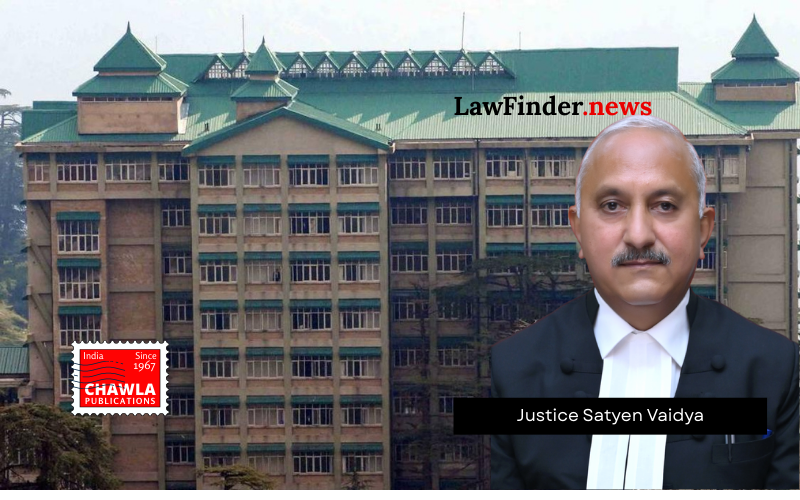Judgment Affirms Exclusion of Other Heirs Based on Care and Support Provided to Testator
In a significant judgment, the Himachal Pradesh High Court has upheld the validity of a will executed by Anokhi Ram, favoring his daughter Prema Devi and her husband Gopal, while excluding his wife and other daughters. The decision was pronounced by Justice Satyen Vaidya, dismissing the appeal filed by Vidya and others who had challenged the will dated January 6, 1983.
The appellants contended that the will was fraudulent and claimed the property was ancestral, which could not be legally bequeathed. They also argued that Anokhi Ram lacked a sound disposing mind and that the will was surrounded by suspicious circumstances. However, the court found that the will was duly proved through evidence, with no suspicious circumstances remaining unexplained.
Justice Vaidya noted that Prema Devi and Gopal had taken care of Anokhi Ram and his family, a fact corroborated by multiple witnesses. The court rejected claims of fraud and misrepresentation, emphasizing that the testator's choice to favor one daughter and son-in-law was not unnatural or perverse.
The court also examined whether the suit property was ancestral coparcenary property, concluding that the plaintiffs failed to prove this. The appellate court reaffirmed that Anokhi Ram had full ownership rights and could legally bequeath the property through a will.
The judgment has set a precedent in affirming the autonomy of a testator to choose beneficiaries based on personal relationships and care received, even if it means excluding other natural heirs. The decision reflects the court's stance on upholding genuine wills unless substantial evidence proves otherwise.
Bottom Line:
A Will executed by the testator in favor of one of his daughters and her husband, who took care of the testator and his family, is valid if its execution is duly proved, and no suspicious circumstances remain unexplained.
Statutory provision(s): Indian Succession Act, 1925 Section 63, Indian Evidence Act, 1872 Section 68, Hindu Succession Act, 1956 Section 6, Civil Procedure Code, 1908 Order 41, Rule 33
Vidya v. Vinita, (Himachal Pradesh Shimla) : Law Finder Doc Id # 2772495




